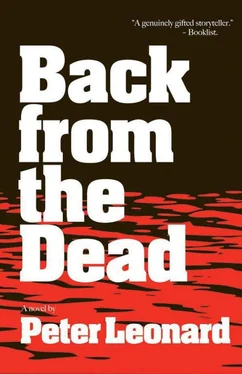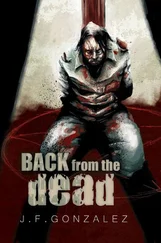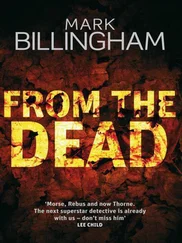Hess saw Broussard coming toward him. “M. Chartier, it has been too long. I see the Chagall has caught your eye. This is one of my favorites. You can feel the emotion.” Broussard paused, out of breath. He was overweight and walking across the gallery floor had exhausted him. “Picasso once said, ‘When Matisse dies Chagall will be the only one who knows color.’”
“It is magnificent,” Hess said. “But I am here to sell, not to buy.”
“What are you selling?”
“A Van Gogh.”
Broussard blinked with excitement. He rubbed the tip of his long Gallic nose. “When can I see it?”
“I will bring the painting to you.”
“At least tell me the title if you wouldn’t mind.” Broussard could hardly contain his excitement.
“I’ll surprise you.”
“I can’t wait. How about tomorrow morning? Will that be convenient?”
Hess drove back to Nice and had lunch at a restaurant overlooking the harbor. Ordered a bottle of Puligny-Montrachet and a bowl of mussels to start, followed by grilled sea bass, enjoying a leisurely lunch, watching the pleasure boats motor in and out.
On his way to the villa Hess stopped at a cafe on boulevard Gambetta for coffee, sitting outside, the sun on his face, drinking the bitter double espresso in three sips, feeling that surge of caffeinated energy. He paid for the coffee and walked down the street, stopped in a wine shop and bought a Chablis for the cheese, and two bottles of Bonnes-Mares, thinking an earthy Nuits would be perfect with the coq au vin Marie-Noëlle was preparing.
Harry checked the phone book. The only name close to Vincent Chartier was V. Chartier in Antibes, a quaint little town down the coast. The address was a small house just out of town. The owner was a stylish fifty-year-old woman named Vivienne Chartier. She didn’t know a man named Vincent Chartier in Nice. All of her relatives were from Aix-en-Provence and Marseille.
She invited them in for coffee and pastries, Harry thinking this older broad was surprisingly attractive. Colette picked up the vibe and gave him a look that said she did too and he’d better watch himself.
After coffee and conversation with Mme Chartier they drove back to the hotel to get Cordell. He’d left a note in the room saying he was going to walk the beach, scope the topless sunbathers, Harry thinking at sixty-two degrees the locals were going to be wearing parkas, not bikinis.
The concierge had given Harry the name of a high-end real-estate broker who might be able to help them. His office was just down the street. They went there and met M. Gascon, a plump effeminate man with a little mustache who had been selling properties on the Côte d’Azur since the end of the war.
“Mademoiselle is trying to locate her estranged uncle,” Harry said, referring to Colette. “Her aunt died recently and no one has heard from Vincent Chartier, Uncle Vince, for quite some time. His name is not in the phone book. How do we find him?”
“The property is registered in the uncle’s name?”
“As far as we know,” Colette said.
Gascon looked at her quizzically. “The system of land registration in France is cadastre . It is maintained by the French public land registry under the auspices of the tax authority, the Direction Générale des Finances Publiques.”
Gascon might as well have been speaking Chinese for all Harry could understand.
“To find the owner of a specific plot, you must consult the matrice cadastrale. You go to the local land registry, the Centre des Impôts Fonciers.”
Harry said, “Is it in Nice?”
“Yes, of course, Nice. On rue Joseph Cadei.”
They took a taxi to the office, waited an hour for the only clerk who spoke English. Gilles, a young longhaired Frenchman, escorted them to an office and sat across a table from them. Harry explained who they were and what they wanted.
“What proof do you have that M. Chartier is your uncle? How do I know you are related to this man? Do you have a passport? A birth certificate?”
Harry could see they weren’t going to get anywhere with this guy unless he took a chance. “I have something better than a passport.” He slid a wad of francs across the table. The clerk stared at the money, Harry wondering what he was thinking.
There was a long silence and then the clerk picked up the bills and put them in his pocket.
Harry said, “Where is the corniche des Oliviers? I don’t see it.” The concierge studied the map that was open on the mahogany hotel counter and pointed to an area north of the city. “You do not see the street name because it is not there. But here you see route de St Pierre de Féric?” The concierge traced the road with his index finger.
Colette leaned in close.
“This road becomes the one you look for.” The concierge pointed again to show Harry. “Right here, past the church.” Harry looked at the maze of winding roads. “How do we get up there?”
“You see boulevard Gambetta?” The concierge pointed to a heavier line on the map that went straight up from the Mediterranean. “Take this to boulevard du Tzarewitch, go left and follow this.” He highlighted the route in red marker.
Harry thanked the man and gave him a ten-franc note and folded up the map. He and Colette sat on a couch in the lobby that was always crowded, always full of people walking around. Harry said, “Are you ready?”
“What are we going to do?”
“Drive up and find the villa.”
“And then what? Are you going to ring the bell?”
“I haven’t gotten that far.”
Colette frowned.
“If you don’t want to come–”
“I want to, I’m just nervous, wondering what’s going to happen.”
“Probably nothing. First we have to find it. Then we’ll decide what to do. How does that sound?”
“Okay, Harry. I’ll be your navigator.”
The valet brought the Peugeot and Harry drove along the promenade des Anglais, past the joggers and walkers and blue-and-white beach chairs lined up facing the water. “This is it,” Colette said, the map spread open in her lap. “Turn right.”
Now they were on boulevard Gambetta passing shops and cafes, markets and bakeries. He went left where Colette told him to turn and they climbed a steep incline in a residential neighborhood. He went left again and then right on avenue du Dauphine, climbing higher into the hills on a narrow winding road that didn’t look wide enough for two cars. Driving alongside a brick wall about five feet high added to his feeling of claustrophobia. Harry saw a bus approaching and got over as far as he could. The bus passed inches away. Harry let out a breath. They went around a blind 180-degree turn and through a one-lane brick tunnel, halting at a stop sign at the top of a hill. Harry looked at Colette. “You have any idea where we are?”
“Harry, this is it, this is the road, turn right,” Colette said, looking up from the map.
He turned and they drove up a steeper stretch of road. Out the right side he could look down the valley and see the city of Nice spread out stretching all the way to the Mediterranean. They were on route de St Pierre de Féric. Harry saw a church on the left, and according to the concierge, the road now turned into corniche des Oliviers. Fifty yards further on, Colette pointed to her right and said, “There, Harry.”
He hit the brake and saw number 26 on a black metal gate, the entrance to the villa. Driving by he could see the top floor set behind a six-foot wall made of stone. Harry wanted to stop but there was no place to pull over. He looked in the rearview mirror and saw a truck bearing down on them and sped up. Just ahead they came to a small café on the left and pulled in.
Читать дальше












